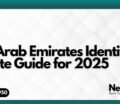
Starting forex trading in UAE legally means obtaining a proper forex trading license in the UAE. This license allows you to operate as a regulated broker or trading firm under UAE regulations. In this guide, we’ll walk you through every step—from eligibility, documentation, license types, regulation, costs, and best practices—so you can launch your forex brokerage securely.
Forex Trading License in UAE – Definition & Importance
You must understand what a forex trading license in UAE is and why it’s essential.
A forex trading license in the UAE is a regulatory approval issued by UAE financial authorities to trade or offer forex services. It ensures your company meets legal, capital, and compliance standards.
Without a Forex License UAE, you cannot run a legal forex business. Operating without it risks penalties, fines, or business closure. Licensed firms earn trust from regulators and clients.
Key Requirements for Forex Trading License in UAE
To qualify for a forex license UAE, you must meet strict criteria.
Company Structure and Location
Choose a legal structure (e.g., Mainland, Free Zone, DIFC or ADGM). Your business must be incorporated in a UAE jurisdiction approved for forex licensing.
Minimum Capital & Financial Strength
You need to deposit minimum capital (often millions of AED) in a UAE bank. Regulators require proof of financial soundness, liquidity, and reserves.
Types of Forex Licenses in UAE and Free Zones
There are several types of forex trading licenses depending on jurisdiction.
Mainland Forex License (Central Bank)
A mainland forex license allows trading throughout UAE mainland. It’s regulated by the Central Bank and often requires local sponsorship or compliance with mainland rules.
Free Zone Forex License (DIFC or ADGM)
DIFC Forex License or ADGM trading license allows operation within these financial free zones. Free zones offer flexible rules, low taxes, and 100% ownership.
How to Apply for Forex Trading License in UAE
Understanding the application process for UAE forex license is vital.
Step 1 – Business Plan & Compliance Framework
Submit a detailed forex trading business plan covering services, customer target, risk management, AML policies, and compliance structure.
Step 2 – Submit Documents & Capital Proof
Provide MOUs, articles of incorporation, financial statements, and bank letter showing required forex minimum capital.
Step 3 – Regulatory Review & Interview
UAE regulators review your file, interview your management team, and assess compliance readiness before issuing the forex brokerage license.
Forex License Costs and Fees in UAE
There are significant costs to obtaining a forex trading license in UAE.
Setup & License Fees
Expect license application fees ranging from AED 50,000 to AED 200,000, depending on jurisdiction (mainland vs DIFC/ADGM).
Ongoing Compliance & Audit Costs
Annual costs include audit fees, compliance officer, AML monitoring, IT infrastructure, and regulatory reporting. These can run into hundreds of thousands of AED annually.
Forex Trading License Requirements for Skilled Professionals
Regulators expect experienced teams for a forex license in UAE.
Management Experience & Qualifications
Executives must have proven experience in FX markets, strong credentials, and clean records. Certifications and past performance matter.
Compliance & Risk Management Team
You need a full compliance team trained in anti‑money laundering, client protection, and trade surveillance systems.
Forex License Regulations and Compliance in UAE
Running a forex brokerage requires tight regulatory compliance.
Anti‑Money Laundering (AML) Policies
Strict AML rules are enforced. You must conduct KYC, monitor transactions, report suspicious activities, and file periodic AML reports.
Client Fund Segregation & Reporting
Client funds must be segregated in designated accounts. Regular capital adequacy reports, transaction logs, and audit submissions are required.
Forex Broker Licensing vs Proprietary Trading License
Understand the difference between broker license and own trading license.
Broker License (Client Facing)
This allows you to provide trading services to public clients. You must maintain liquidity, manage client accounts, and comply with investor protection rules.
Proprietary Trading License (Internal Trading)
If you only trade your company’s funds, you may apply for a proprietary license. It has lower regulatory burden but cannot serve retail clients.
Timeline to Get Forex Trading License in UAE
Know how long each stage takes in the UAE forex license process.
Pre‑application & Initial Setup
Company formation, bank account opening, and structuring may take 2–3 months.
Regulator Review & Final Approval
Regulatory due diligence, background checks, and interviews usually take 3–6 months. Total time from start to license issuance: 6–9 months.
Common Challenges in UAE Forex License Approval
Be aware of hurdles when applying for a forex license in UAE.
Capital Shortfall or Weak Financial Plan
Regulators may reject applications with insufficient capital or unclear revenue models.
Poor Compliance or Inexperienced Team
If your team lacks FX experience or compliance infrastructure is weak, approvals may be denied.
Benefits of Holding a Forex License in UAE
Licensing offers advantages beyond legality.
Access to Regional Markets & Prestige
A licensed forex firm in the UAE gains credibility, access to clients in Middle East and North Africa, and signals trust.
Investor Protection & Regulatory Trust
Clients see regulated brokers as safer. Licensing can attract institutional partners and higher-value clients.
Integrating Your Forex License into Business Setup in Dubai
Your forex license aligns with broader business goals in UAE.
Strategic Setup in DIFC/ADGM or Mainland
Choose jurisdiction to match your client focus—DIFC/ADGM for international, Mainland for broader UAE reach.
Role in Wider Business Setup
A forex trading license can be combined with advisory, asset management, or financial services—supporting your business setup.
Conclusion
Launching a legally compliant forex trading license in UAE requires careful planning, strong capital, and a robust compliance framework. By choosing the right jurisdiction, meeting regulatory criteria, and assembling an experienced team, you can establish a trusted licensed forex brokerage in UAE. This license is a key pillar in any business setup in Dubai, UAE, especially if you aim to offer high‑quality financial services in a regulated environment.
FAQs
How much does a forex trading license in UAE cost?
License fees range from AED 50,000 to AED 200,000 plus annual regulatory and audit costs in the hundreds of thousands.
Can a foreigner get a forex license in UAE?
Yes. In free zones (DIFC/ADGM), 100% foreign ownership is permitted. Mainland requires local sponsorship in some cases.
What is the minimum capital for a forex license in UAE?
Capital requirements vary, but most zones require AED 3 million to AED 10 million capital proof.
How long does it take to get a forex license in UAE?
The full process may take 6 to 9 months, including setup and regulatory approval.
Can I offer services globally with a UAE forex license?
Yes, free‑zone licenses like DIFC/ADGM allow international operations, subject to local laws.
Do I need to maintain client funds in UAE banks?
Yes. Client fund segregation in UAE-regulated accounts is mandatory for investor protection.
Can I switch from a provisional license to another jurisdiction?
Yes, but it requires regulator approval, re‑filing, and possibly more capital.
Does holding a forex license in UAE allow me to trade personally?
If you hold a proprietary license, yes—otherwise, a broker license only covers client-facing services.
What ongoing compliance is needed post‑license?
You must submit financial audits, AML reports, and meet capital adequacy requirements annually.
Is a forex license required to offer CFD trading?
Yes. Contracts-for-Difference on currencies or commodities are only permitted under a licensed forex or derivatives license.








